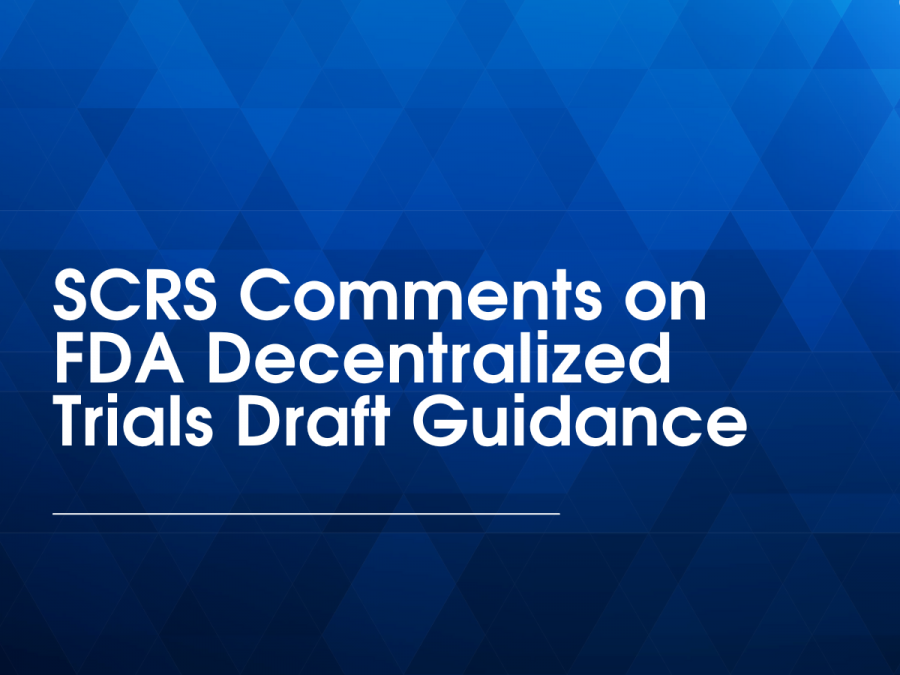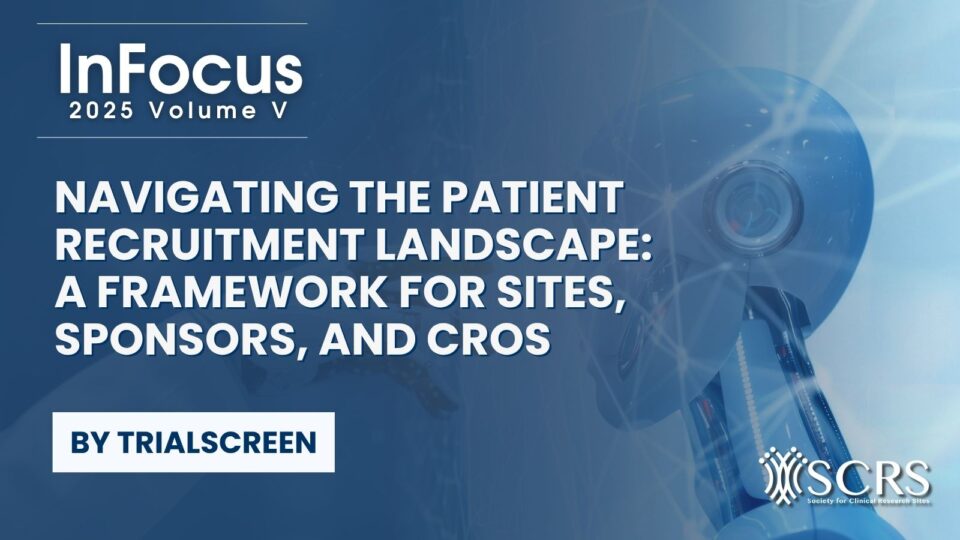SCRS Public Policy Program Comments on FDA Decentralized Trials Draft Guidance

SCRS comments on the Federal Drug Administration (FDA) 2023 Draft Guidance: “Decentralized Clinical Trials for Drugs, Biological Products, and Devices Guidance for Industry, Investigators, and Other Stakeholders”
First, we applaud the FDA for preparing this guidance and its intent to foster the extension of the traditional research site via various mechanisms. It’s vital that the industry enables patients to have increased access to the necessary items and services required to successfully enter and complete clinical trials. We concur that there are proper ways to extend a clinical trial site/investigators’ traditional “brick and mortar” model to one that can be extended by technology, mobile research staff and healthcare providers that are more proximal to the patient at their time of need.
Although it challenges the traditional business model of the site industry, the SCRS Site Landscape Survey results indicated that sites are participating in these kinds of studies in a post-COVID environment, the top two reasons being “would be beneficial to the participant” and “desire to bring my site into the future”.
While we see the investigator/site industry as concurring with the purpose of this draft guidance and with many of the FDA’s recommendations herein, certain components of the current draft are having the opposite of the intended effect. Some components codify several systems and gaps that are known to contribute to investigators/sites’ unwillingness to facilitate decentralized components due to fear of regulatory retribution. Herein we take the approach of highlighting key issues we believe the FDA should address in this guidance to accomplish our shared goal.
We cannot emphasize enough that the erosion of site/investigator oversight and the expected regulatory consequences have a negative effect on the adoption of decentralized/hybrid trials.
Based on the 2023 SCRS Site Landscape Survey, overwhelmingly the sites’ answer to the question “what have you experienced to be the biggest challenges for your site in participating in decentralized trials” was “oversight of remote vendors that would interact with the patient, record source data”. For sites that refused to conduct trials with the added decentralized components, the second and third most common reasons cited were “not comfortable with this type of trial” and “lack of understanding on how the trial would operationalize”.
The great majority of our comments relate to this theme of the site/investigator’s eroding control over the operation of the clinical trial, coupled with the reiteration that they remain ultimately responsible from a regulatory perspective.
Thank you to our project contributors:
Lisa Bjornestad, DM Clinical Research
Daniel Fox, Clinical Research Payment Network
Christie Fry, AbbVie
Nadege Gunn, Impact Research Institute
Kathleen McNaughton, Mayo Clinic
Lindsey Morales, Gilead Sciences
Debra Rogge, AstraZeneca
Shivani Shah, DM Clinical Research
David Vulcano, HCA Healthcare & SCRS
Scott Whitt, Triad Clinical Trials
Jennine Zumbuhl, Dignity Health




